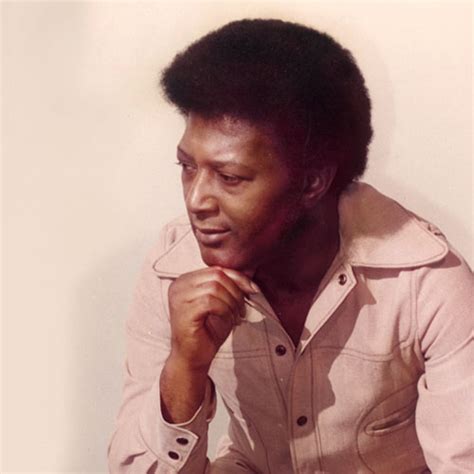A Quote by Samuel P. Huntington
Also, of course, for most of this time most Americans thought of America as a white country with, at best, only a very segregated and subordinate role for blacks.
Related Quotes
I was on a panel with light skinned Blacks and a famous gay science fiction writer, who were complaining about how Blacks are against gays and light skinned Blacks and how intolerant Blacks are of different groups. My position was that Blacks were among the most humanistic, tolerant groups in the country and that across the street from my house in Oakland was one inhabited by White gays.
The strange thing about my life is that I came to America at about the time when racial attitudes were changing. This was a big help to me. Also, the people who were most cruel to me when I first came to America were black Americans. They made absolute fun of the way I talked, the way I dressed. I couldn't dance. The people who were most kind and loving to me were white people. So what can one make of that? Perhaps it was a coincidence that all the people who found me strange were black and all the people who didn't were white.
I realized that most white Americans knew very little about our history and our struggle, and were having difficulty understanding the basis for our agitation and our resistance and our complaints. I also discovered that while black Americans had a sense of the beauty and tragedy of the journey from the time of slavery until now, we were not rooted in the specifics. I thought one way to familiarize people with that history would be through the voices of the great folk artists.
The image of blacks usually is one of people who are suffering from hunger, unemployment, and poverty. The idea of them as agents and activists - as starting revolutions - does not exist in most people's minds. And I think it's very, very important that folks understand how much America was founded on the enslavement of blacks, and how the resistance of blacks to that enslavement has been the spark plug for so many important developments.
I'm always frustrated that most Americans, even activists, know so little about the movements and people that have made America a better country. Yes, we still have plenty of problems and progressives have much more work to do, but we also need to celebrate the progressive pioneers who fought and won many victories that have made America a more democratic, inclusive country.
The image of blacks usually is one of people who are suffering from hunger, unemployment, and poverty. The idea of them as agents and activists - as starting revolutions - does not exist in most people's minds. And I think it's very, very important that folks understand how much this country was founded on the enslavement of blacks, and how the resistance of blacks to that enslavement has been the spark plug for so many important developments.
I know whites buy more records than blacks. So, I wanted to be able to make the most money that I could. Pop is for both whites and blacks, but if I just stuck to rhythm and blues, it's mostly for blacks. I didn't want to do that. So like I said, I wanted to get the most out of it that I could, so I thought that pop was the way to go.
It is easy for Americans to forget a simple fact that is very clear to the people around the world that yearn to live in this country: America is the best country in the entire damn world! It deserves to be made great again, because America is, in the words of President Ronald Reagan, 'the last best hope of mankind.'
I think there's sometimes too much attention to a few people who do hold extreme views. Most Americans go about their lives living in communities that are increasingly multiethnic, increasingly multi-religious. And they are welcoming of people who are not like themselves. Now, I don't have rose-colored glasses about America, because I grew up in the segregated South. But I watch it every day. I think that Americans are very tolerant people.




































